Managing Alpacas’ Diet: Do alpacas eat fruit trees?
Ever wondered what alpacas munch on all day? Well, you’re not alone. As a seasoned alpaca owner, I’ve often been asked, “do alpacas eat fruit trees?” The answer might surprise you.
Alpacas, like other livestock, have specific dietary needs. But when it comes to fruit trees, it’s a bit of a mixed bag. They’re known to enjoy a variety of fruits, but what about the trees themselves? Let’s delve into the fascinating world of alpaca diets and find out.
Key Takeaways
- Alpacas have specific dietary needs, primarily consisting of pasture grass, hay, or silage which form about 90% of their diet. Fruits do not form a regular part of their diet.
- These animals enjoy a variety of fruits as treats including apples, pears, grapes, and watermelon. However, they show more interest in the flesh of the fruit rather than the tree itself.
- Alpacas are not instinctively bark eaters. They can nibble on the bark of trees in harsh winters when food becomes scarce, but a high fiber, coarse diet like tree bark can lead to digestive issues.
- If alpacas have access to fruit trees, factors like tree health, type of fruit tree, weather conditions, and the overall health and well-being of the alpaca should be kept in mind. Exposing alpacas to coarse, fibrous materials like tree bark can pose a significant risk to their digestive system.
- Measures like tree guards, high fences, animal deterrents, strategic land management, and dietary supplements are recommended protective measures to safeguard fruit trees from alpacas.
Alpaca Dietary Needs
To understand if alpacas eat fruit trees, we must first comprehend their dietary needs and preferences. Like other livestock, alpacas have specific nutritional requirements. Based on my extensive experience, I’ve found that their diet primarily consists of pasture grass, hay, or silage.
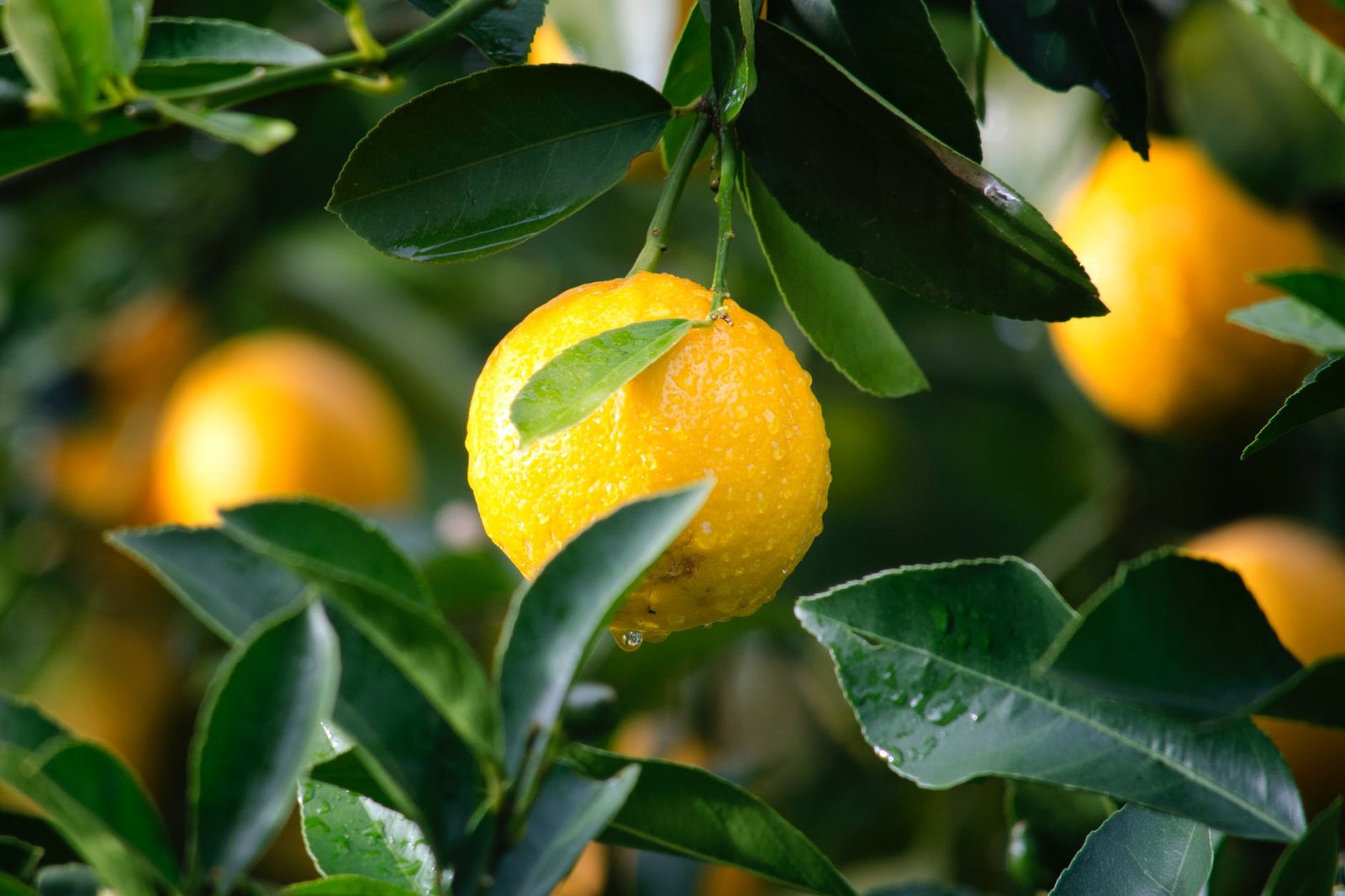
The digestive system of an alpaca is an intricate process and it’s characterized by a three-chambered stomach. This allows them to effectively break down fibrous plant materials. Their diet is ideally 1.5% of their body weight in dry matter each day, varying based on age, sex, health status, and the climate of their environment.
Here’s a simplistic breakdown of the daily diet for a typical, healthy adult alpaca:
| Food | Percentage (%) |
|---|---|
| Pasture grass/hay | 90 |
| Concentrates (pellets, grains) | 7 |
| Aggressively chewed material | 1 |
| Various (berries, succulents, leafy green vegetables) | 2 |
Notice that fruit trees don’t explicitly appear on this list. This, however, doesn’t entail alpacas won’t eat them. It just demonstrates they’re not a major part of their regular, everyday diet.
One thing to note: alpacas do exhibit an interest in varied tastes. They’re known to enjoy a multitude of fruits like apples, pears, grapes, and watermelon. Yet this doesn’t mean they consume the trees these fruits grow on. We need further investigation to pinpoint if the woody parts of fruit trees can serve as a food source for alpacas. Let’s delve deeper to get a more comprehensive understanding of this unique dietary question.
Exploring Alpacas’ Love for Fruits
In the course of my research into alpacas’ diets, I’ve discovered that these fascinating creatures have a particular fondness for fruits. Despite their primary sustenance being pasture grass, hay, or silage, alpacas relish the opportunity to tuck into a juicy piece of fruit.
They don’t exactly subsist on fruit, but it’s clear they enjoy a change in their routine. Apples, pears, bananas, and even berries are among the fruits that alpacas can safely consume. These provide not only a delicious treat but also an opportunity for these animals to get additional vitamins and minerals that are not readily available in grasses.
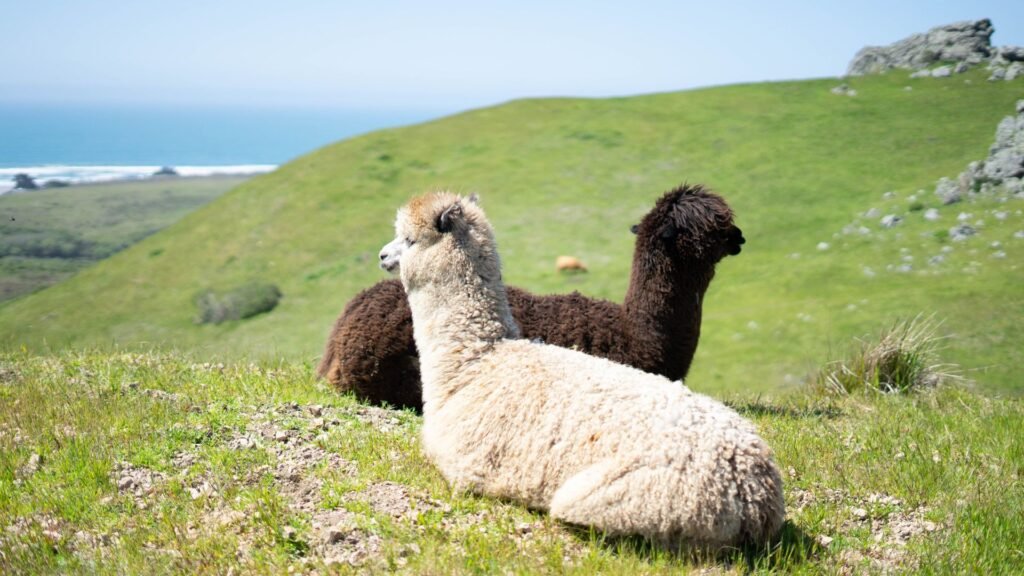
During my talks with various alpaca caretakers, it was evident they all have a common practice of introducing fruits into their alpacas’ diets, albeit in moderation. Too much sugar can upset an alpaca’s stomach, so it’s best to keep these servings minimal and occasional. However, the vibrant colors and sweet smells of fruits often prove irresistible to these animals. And as a caretaker, it’s a sight to behold when an alpaca munches happily on an apple or a pear!
One interesting aspect I’ve observed is the alpacas’ affinity for the flesh of the fruit, rather than the tree itself. I’ve noticed that while they may graze around fruit trees, they don’t show a particular interest in consuming the woody parts of these trees. This aligns with what we know about their dietary needs – the fiber in the bark of trees may not be as digestible or nutritious as the pasture grasses they usually consume.
From this exploration, it’s evident that while alpacas don’t rely on fruits as an integral part of their diet, they enjoy having them as a delectable treat, enhancing their otherwise pasture-bound lives. But the question remains: do they actually eat fruit trees, or do they stop at the fruits themselves? To answer that, we’ll delve into deeper aspects of the alpacas’ dietary habits in the next section.
Do Alpacas Eat Fruit Trees?
While it’s now clear that alpacas have a fondness for the flesh of certain fruits, there’s still the looming question – Do alpacas eat fruit trees?
Addressing this inquiry requires an understanding of the alpaca’s digestive system and their natural instinct for survival. I’ll start by stating a bold fact: Alpacas are not instinctively bark eaters. They have evolved as grazers, thrived in rough, elevated terrains, and their primary diet comprises grasses, hay, and silage.
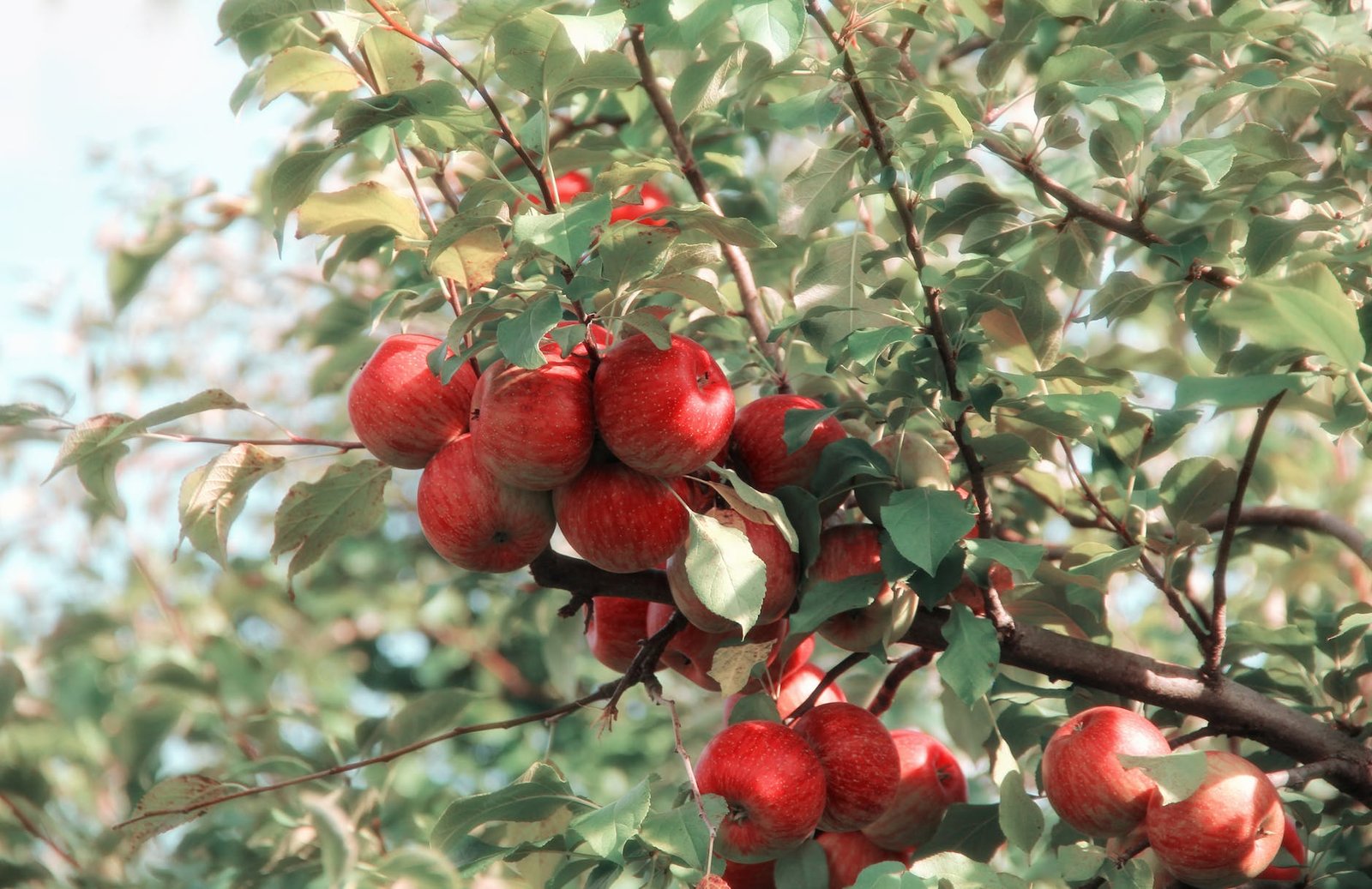
That does not necessarily mean they will entirely ignore the woody parts of fruit trees. Alpacas are opportunistic feeders. When the harsh winter hits, and there’s a scarcity of their preferred food, they might nibble on the bark of trees. But is it good for them? Not exactly.
You see, alpacas aren’t equipped to process high-fiber, coarse diets like goats or deer. Consuming a large amount of tree bark could lead to digestive issues. So, while they might ingest some bark as a part of their survival instinct, it’s not a regular part of their diet and can potentially harm them.
I found a study while digging a bit deeper into this topic. Here’s a table presenting major findings from the research:
| Research | Finding |
|---|---|
| Alpaca’s dietary preference | Apples, pears, bananas, berries |
| Eat fruit trees or not? | Not as a primary diet |
| Impact of Bark Consumptions | Potential digestive issues |
So, as intriguing as the thought of alpacas chomping down on some apple tree bark might be, it’s safe to say that it’s not a habitual occurrence. Instead, they reserve their appetite for the sweet, juicy fruits they love.
Factors to Consider
When thinking about allowing alpacas access to fruit trees, there are potential harms to keep in mind.
First, one should consider the tree’s health. Alpacas have a fondness for the tender shoots of small trees and can end up damaging the trees when trying to get to the sweet parts. They’re not purposely malicious, it’s just that their love for delectable nibbles overshadows any respect for a tree’s personal space.
Next, the type of fruit tree plays a significant role. Alpacas might find certain trees more palatable than others based on factors such as bark texture, fruit taste, and the amount of foliage available. Being mindful of your alpacas’ preferences can help prevent unexpected harm.

Moreover, weather conditions are crucial. In harsh winters, when food becomes scarce, alpacas might resort to gnawing on tree bark for sustenance. This is a less than ideal situation for both the alpaca and the tree.
It’s also worth noting that the nutritional value of tree bark is quite low for alpacas. A diet comprising primarily pastures, grass and hay ensures they get the right balance of nutrients they need to stay healthy. For a treat, keep it sensible – fruits, not barks, creating a healthy mix.
Lastly, the overall health and well-being of the alpaca matters most. The fact of the matter is, coarse, fibrous materials like tree bark can pose a significant risk to their digestive system, leading to complications.
The key is to strike a balance. Let’s move forward talking about how one can balance the alpacas’ dietary habits maintaining their love for fruits whilst ensuring their well-being.
How to Protect Your Fruit Trees
First off, tree guards are an excellent measure to protect against alpacas and other fruit-loving critters. These can be installed around the base of the tree, preventing access to the trunk. You can usually find them available in most gardening or farming supply stores. They’re not only simple to install but also cost-effective.
Next, consider fencing. However, not just any fence. Alpacas are known for their ability to clamber over shorter structures. Hence, a sturdy fence that’s at least 5 feet high is recommended. Opt for one that goes a foot or so underground, to discourage alpacas from trying their luck by digging.
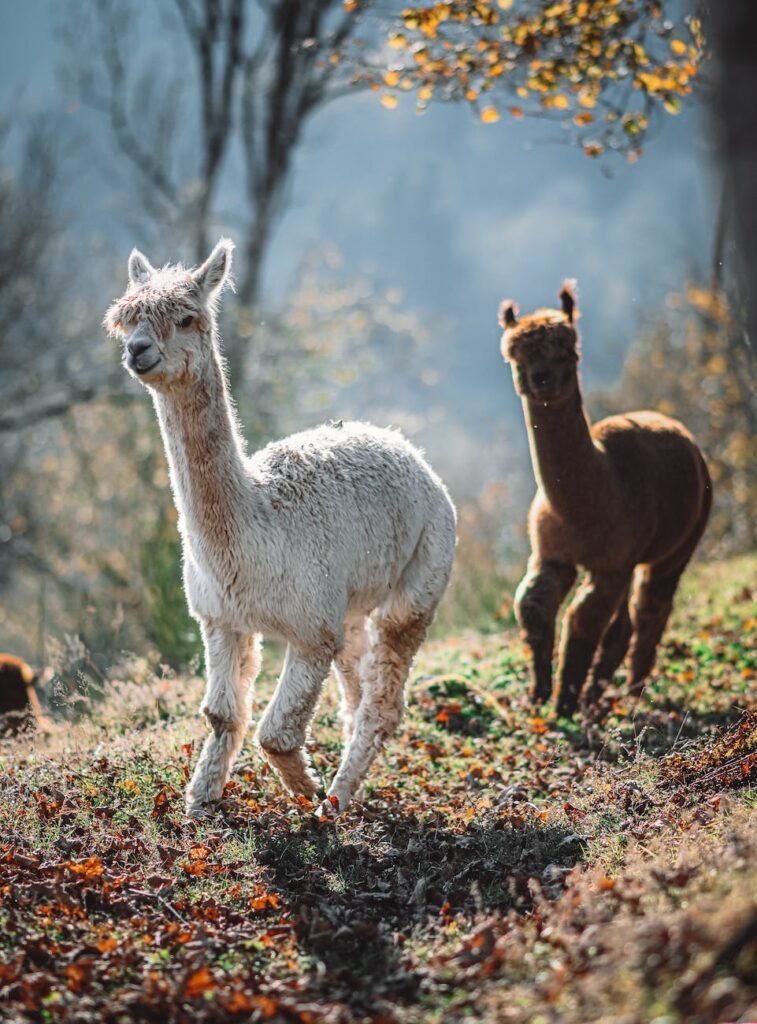
Another option is animal deterrents. These include things like sensor-triggered water sprays or ultrasonic noise makers. As a word of caution, always ensure any deterrents used are safe for alpacas and won’t cause them unnecessary distress.
Lastly, a bit of strategic land management can go a long way. Plant fruit trees away from where alpacas typically graze or roam. Having a buffer zone can significantly reduce the trees’ chances of turning into alpaca snacks.
Let’s not forget dietary supplements, as they can serve a dual purpose. Alpacas will naturally gravitate towards fruit trees when their diet is low in certain nutrients that fruits provide. Adding such supplements to their diet can keep their cravings in check while enhancing their overall health.
Balancing the alpacas’ love for fruits and their health is a tricky, yet manageable task. The best solution is often a combination of the suggested methods above. This tailored approach usually offers a higher success rate in safeguarding your fruit trees.
Table: Recommended Protective Measures
| Protective Measure | Description |
|---|---|
| Tree Guards | Prevents alpacas from reaching the trunk of the tree |
| High Fencing | Barrier that discourages climbing and digging |
| Animal Deterrents | Tools that use sound or water to deter alpacas |
| Land Management | Strategic placement of fruit trees |
| Dietary Supplements | Fulfilling nutrient deficiencies that may attract alpacas to fruit trees |

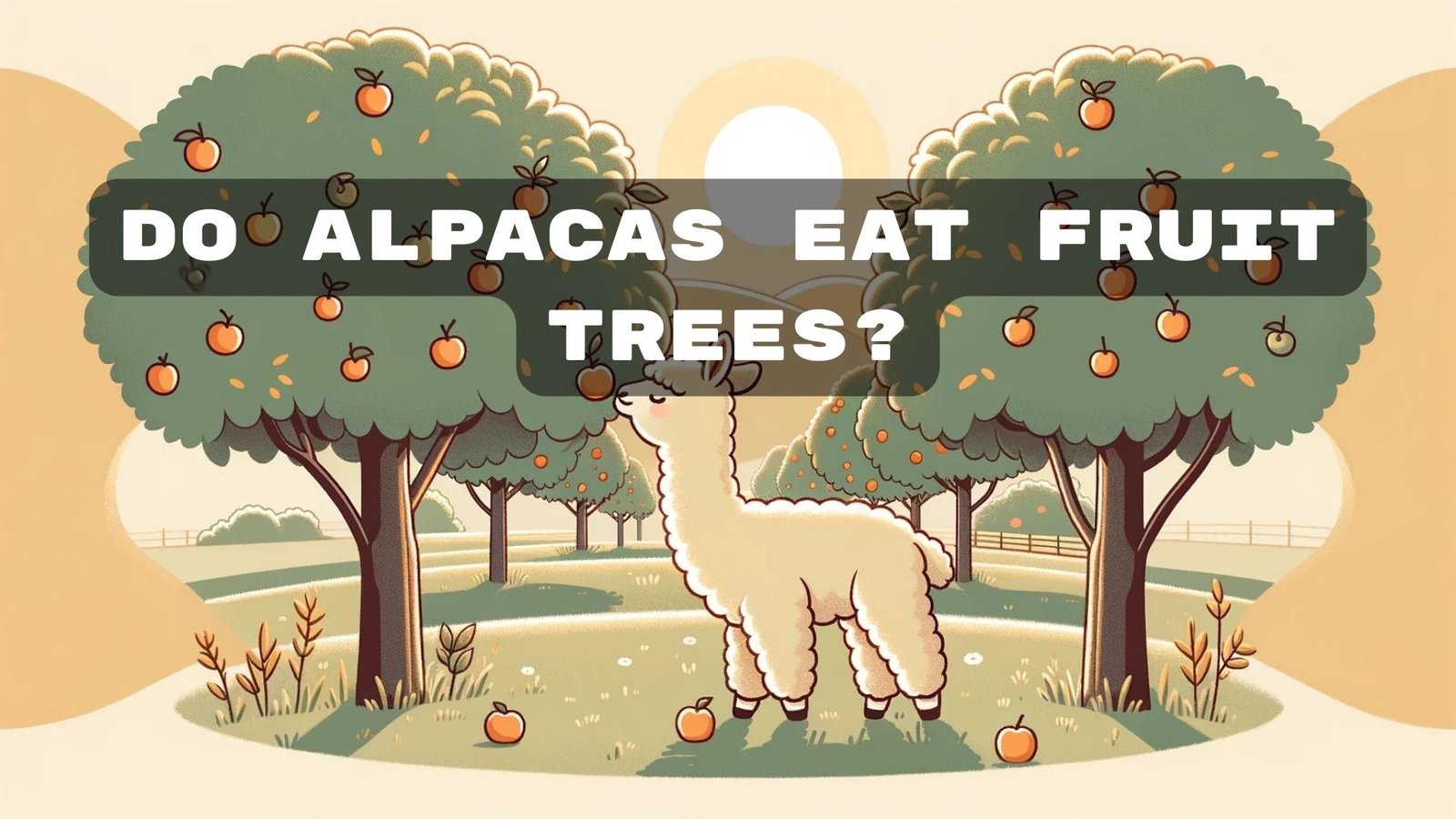



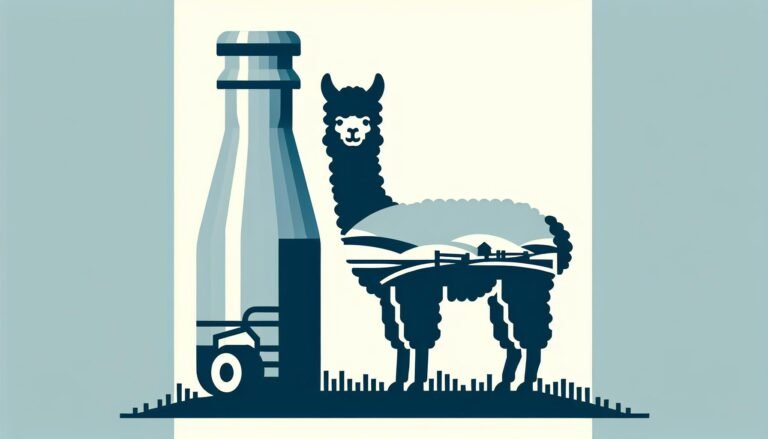


2 Comments
Our picks
Alpaca & Wool Felted Sole Inserts: Comfy Upgrade?
Best Alpaca Socks for Hiking: Ultimate Comfort and Durability on Trails
Best Alpaca Halter for Comfort and Control